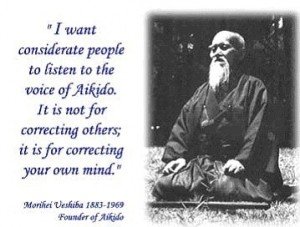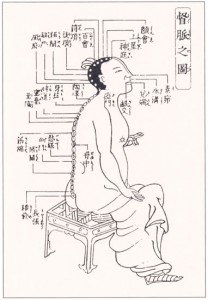Right off the bat we survivalists know that a big benefit of martial arts study is physical fitness. It is fairly obvious that a fit person will get along a lot better in any survival scenario. Being as fit as you can be. Just makes good sense for any survivalist.
Do you need to learn a martial art?
We can all see why a survivalist would want to learn how to defend him/herself from attack by another person(s) in any situation and how to utilize most anything that comes to hand as a tool or weapon to do it with. After all, the ultimate goal of a true survivalist is to be as ready as possible to cope with and survive any situation life might present. But do you as a survivalist really need to learn a martial art to accomplish this goal? Well, in the strictest interpretation of the title martial art yes, you do – but this may be misleading.
Strictly speaking, martial art means military art and thus can be defined as any formal method of combat that can be studied and learned. Boxing is just as much a martial art as Karate or Kung Fu and anything from rifle marksmanship to flying a B-52 on a bombing run over a terrorist camp falls into the same group by definition.
So the term martial arts is loosely used here to mean anything related to the primary function of the military, i.e. combat. Right?
Well, sort of. To most of us a martial art is a system of hand-to-hand fighting, sometimes with certain archaic weapons, that has been organized and heavily stylized over many centuries. Most of us think of martial arts as something you practice while wearing a special outfit and doing a lot of bowing. I confess that I often think of it that way also if for no other reason than to keep things in perspective. But a martial art is so much more than just a method of self-defense I think it is important to differentiate between the two.
The reason I think a martial art is something different from a self-defense course is my interpretation of the word art.
Things start changing when the study goes beyond the simple self-defense moves and self-discipline becomes a goal. Then they change again beyond that when self-mastery (mastering both the physical and mental being) becomes the goal and the true meaning of the word art begins to be understood.
Realization of the art comes when the perfection of technique becomes part of a non-thought process and only an automatic and correct response to any situation is the final outcome. This is steeped heavily in the Zen thought process and is the pursuit of a true martial artist. It is this that takes a lifetime of work and yet may never be achieved.
The endless pursuit is the object and the journey becomes the goal. Here we find the difference between martial art and self-defense.
All fine and well, but does a survivalist need to spend a lifetime of pain and struggle to learn some means of armed and unarmed self-defense? No. A fair level of expertise can be taught to an average student by a good instructor, in a matter of days. A dedicated person can become quite expert at self-defense in about a year of dedicated training for a couple of hours a day, several days a week. If you want to dedicate your entire life to mastering a martial art and moving far into the realm of self -study beyond that initial 1st Degree Black Belt that’s great. But it’s not strictly necessary to do so to become adept at defending yourself.
So what DO I need to learn?
Obviously, not everyone is built the same way, mentally or physically. A thin, wiry, flexible person will be far better suited to a martial art like Taekwondo where the emphasis is on speed and high, jumping, spinning kicks. A heavier, shorter more muscular person will do better with an art like Hapkido or Brazilian Jiujitsu that emphasizes grappling, joint locking and throwing. One person might find Kung Fu more aesthetically pleasing than Greco-Roman Wrestling.
Pay attention here because I’m going to impart a little secret that is almost always overlooked by people. It’s also something that most commercial martial arts instructors don’t want you to know.
The Art Must Fit The Student Because The Student Might Not Fit The Art!
Pretend for a moment that I have had no self-defense training at all. If that were so and I was to go out today looking for a method of self-defense to learn or a martial art to study. If I were very slight in stature or physically inflexible for some reason. I would not pick tournament or Olympic style Taekwondo.
Even so due to years of weight training I’m still unusually strong and can use my weight and strength to my advantage. I would, therefore, look more closely at arts like Korean Hapkido, Brazilian Jiujitsu or one of the other styles that lean more toward grappling and joint manipulation.
Here’s a case in point:
There was a student who studied both Taekwondo and Hapkido in school. Determined to learn both arts, he worked extremely hard at it. Devoting many hours per week to his workouts. This student was not naturally limber or flexible. Quite the opposite.
Even after several years of training and stretching he could only just bend and touch his toes. He could only barely kick above waist level. On the other hand, he was wiry and surprisingly strong. He did eventually earn his Cho Dan or 1st Degree Black Belt in Taekwondo and intellectually knew far more than his physical expertise revealed.
It was in the throws, grappling, joint locks and joint breaks of Hapkido where he really shined and his art matched his physical abilities. He never could jump up and kick a tall opponent in the head, but he could sure cut that opponent down to size in right short order. This is a prime example of how one art might not fit a student but another will.
Is there one single martial art that would best serve a survivalist?
Learning any system of self-defense that works for you is better than learning nothing at all. The better the instructor is, the better the student will be if that student takes the lessons seriously. Learning a martial art is better than only learning self-defense because the martial art, studied under a good instructor, will strengthen the entire person internally and externally while the self-defense system will only teach self-defense.
Any martial art is only as good as the person practicing it and he or she is only as good as the person teaching it. There is, of course, the rare exception who is able to surpass a true Grand Master. But I wouldn’t count too much on that exception being you.
I believe one of these people turns up every few hundred years or so.
The one single martial art that would be best suited to a survivalist would be one that lends itself not only to that individual’s natural strong points and minimizes his weak points but also lends itself most readily to that person’s natural surroundings and circumstances. Studying fencing and specializing in the saber is certainly a martial art but would be of little value to an airline flight attendant for self-defense against a terrorist armed with a box cutter attempting hijack the airplane. On the other hand, Hapkido or one of the grappling arts certainly would.
Do all martial arts teach good self-defense techniques?
The answer to this is a resounding NO! Unfortunately, there are good and bad martial arts instructors. Many martial arts instructors have never in their lives have actually used the techniques they’re teaching. They may have even learned them from someone who also never had to use them and who might, in turn, have learned them incorrectly from someone else. I can think of several basic joint-locking techniques that I’ve seen taught incorrectly in schools all over the world.
Somebody got it wrong somewhere along the line and it spread like cancer among poorly trained martial artists.
The incorrect versions work – sort of. The correct versions, applied with the same amount of pressure cause excruciating pain. With little more than a sudden jerk can tear the joint apart rendering the limb useless.
I often see martial arts schools whose instructors don’t hold sufficient rank to promote their students to Black Belt level themselves. I have seen hundreds of self-defense techniques that were absolutely useless. Some that verged on being criminally negligent on the part of the instructor. There are schools though schools where the technique level was consistently high all through the belt rankings and the quality or value level of the self-defense techniques was equally high. Buyer beware!
So how do Survivalists get a good instructor?
I believe there are several criteria in selecting the right martial arts school and instructor for you.
First, does the school have a good reputation. Does it turn out students that are the kind of people you’d like to associate with?
Second, what are the instructor’s credentials? Who was his or her instructor? Sit down and talk to the instructor and see what kind of answers you get to questions you’re interested in. Are the answers evasive or hard to understand? What kind of feeling do you get from the instructor as a person? Listen to your instincts. If the instructor claims he studied with this or that famous Grand Master can you verify this? Don’t just believe in some photograph hanging on the school wall.
Many Grand Masters have posed for photos with every sort of person – they mean nothing.
Ask for references you can contact. If the instructor becomes defensive or hesitates in giving you references you can follow up on, you should leave – immediately. Also, I don’t believe you should at any time feel like you’re being pressured into signing a contract. Especially a Black Belt Contract that guarantees you’ll be paid up all the way to Black Belt. Nonsense! Ask if you can come by and watch classes for a few days. If the answer is no – leave.
Third, watch the classes. Watch the beginners classes and the advanced rank classes. Do you see any worthwhile and realistic self-defense techniques being taught? Do the classes seem well structured? Is the instructor paying attention to all the students with respect to proper technique? Are student safety issues being properly addressed? Remember, this is a contact event and as such is potentially deadly. Expect some lumps and bruises but safety should never be taken lightly.
Last, pick out a student or two who most seems like yourself in build and ability.
Be honest with yourself here because it’s important. It doesn’t matter what rank that student is if it is someone who has studied there for at least six months. Watch how that student is doing in class. Try to judge his or her level of achievement, satisfaction and so on. After class buy that student a cup of coffee and ask some questions.
How do they like the class? The instructor? Are they doing as well as they thought they would? Learning anything useful? Improving physically? You get the idea. If it’s a good school and a good instructor, you will be favorably impressed all the way.
The last thing to consider is if that instructor can take you as far as you would like to go.
If not, then is that instructor well enough connected to pass you along to another? This will be a big indicator as to the quality and honesty of the instructor. Nobody knows everything and every quality instructor has someone to whom they turn for guidance. Until you finally reach the highest ranking. Grand Master of that art. Even then I’ll bet there is someone, somewhere they turn to for guidance.
After you’ve progressed some little way in your study, gained some control of your techniques and perhaps found a training partner of similar ability and interests. Buy some self-defense manuals and video tapes. It helps to broaden your horizons and add to your supply of techniques. You’ll find some that are very good and others that are a waste of time and money. Sorry about that but it’s all part of the game. You can’t know what is good until you’ve seen what isn’t worth chicken spit.
Good luck in your pursuit of quality self-defense instruction.
Remember: You will only become as good as the amount of quality effort you invest. In other words, if you put in a lazy and sloppy effort, you will get back crummy and ineffective results. Put in the real high-quality effort and you’ll get back a new, really high quality you.









Leave a Reply